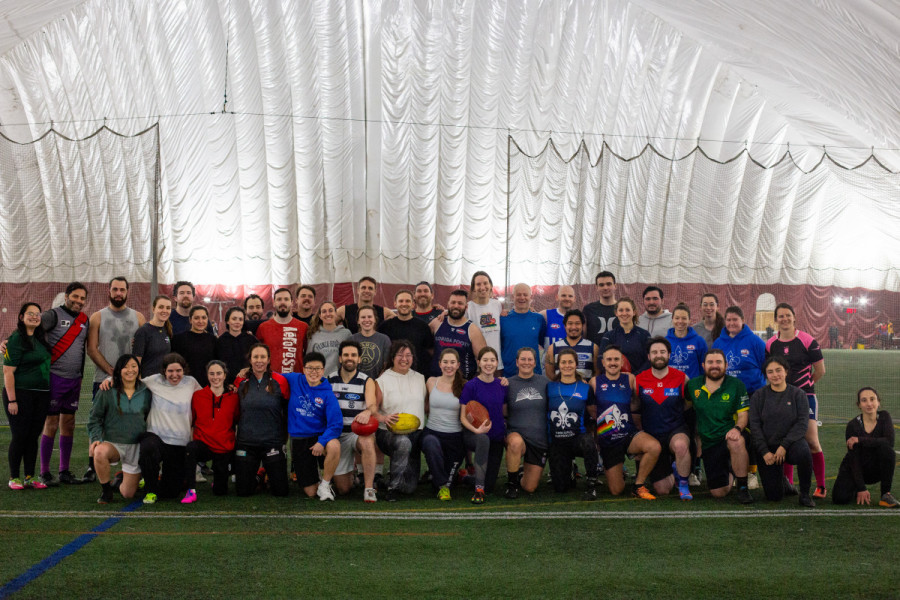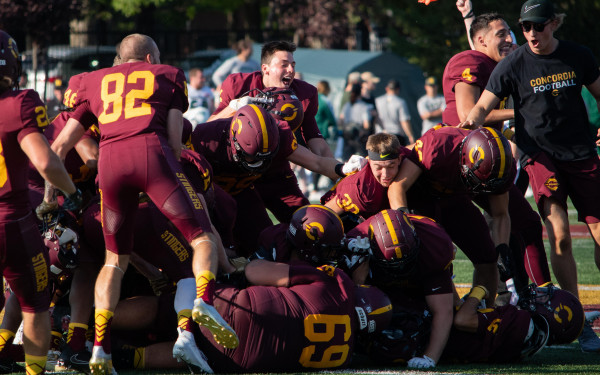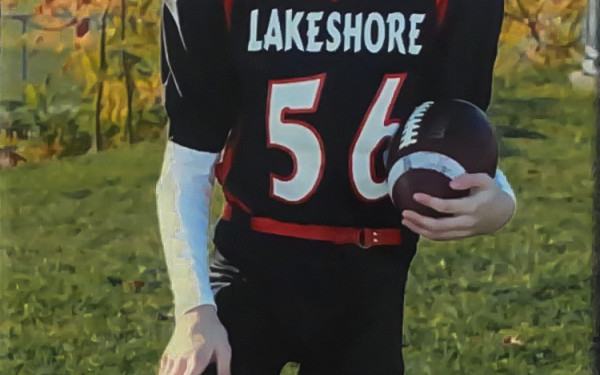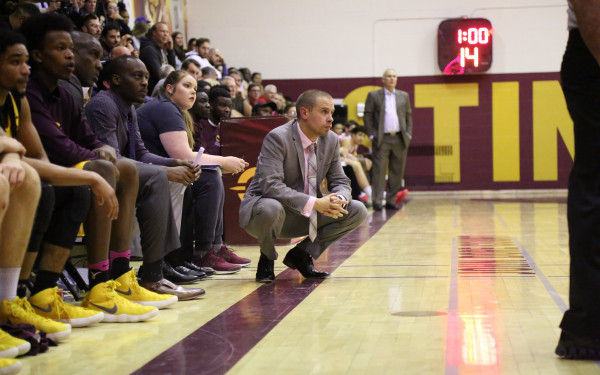AFL Quebec introduces Australian football to Quebecers
The organization creates a welcoming environment for new and experienced players
As soon as they arrive for their weekly practice, Australian Football League (AFL) Quebec players greet each other and spark conversations. Some have known one another for years, and others are completely new to the sport.
Everyone gathers before heading into practice drills, where the newcomers are encouraged to introduce themselves. Although initially nervous about participating, they still feel accepted by their fellow players.
Caroline Leduc, the vice-president of the league, is proud to be part of such a welcoming program.
“Our organization has always been very inclusive and supportive, regardless of a player’s athletic, physical or other abilities,” said Leduc. “We have members from various socioeconomic, racial, and ethnic backgrounds as well as many members from the LGBTQIA2S+ community, with disabilities, or who have different maternal languages.”
Leduc’s best friend introduced her to Australian football, and she fell in love with the league’s sense of community. Leduc played college basketball, where there was always pressure to be the best, so she was taken aback by how everyone in AFL Quebec accepted each other regardless of their skill level.
Australian football is a contact sport played between two teams of 18 players on an oval field twice the size of an NFL field. Originating from Melbourne in the mid-19th century, the roots of the sport are planted in early forms of rugby and Gaelic football, but it is uniquely Australian.
Australian football is played with a ball similar to a rugby ball but longer and more pointed. Games last 80 minutes, split into four quarters of 20 minutes each.
Two sets of posts indicate the scoring areas at either end of the field. Players can either get six points for a goal when the ball travels between the inner set of posts, or one point for a behind when the ball is sent between the outermost set of posts.
The ball can be propelled in any direction through a kick or a clenched fish, called a handball or a handpass. When in possession of the ball, players must either bounce or touch it on the ground at least once every 15 metres while they run with it.
AFL Quebec is a nine-a-side football league—meaning nine players are on both sides of the field—founded in 2008 to capitalize on the popularity of Australian football in Montréal.
The league has men's and women's 18-a-side teams, the Quebec Saints, which compete against other representative teams across Canada and the United States.
The league also has a men’s and women’s division, which comprises teams from Montréal and its surrounding areas.
The regular season generally runs from May until early September, followed by a series of finals that last until late September. The preseason runs from February until April, consisting of training sessions and games.
AFL Quebec prides itself on focusing on inclusiveness and accessibility.
“We do everything possible to keep participation costs to a minimum,” said Leduc. “We are also helping with the integration and social support of newcomers in Montreal. We have many newcomer players, primarily from Australia but also from elsewhere, who have recently moved to Montreal and join us in an effort to make connections and grow a community in their new home.”
Morgan Whyte, the president of the league, was born in Canada but spent some time in Australia as a child. He enjoyed AFL Quebec from the first training session he attended.
“I don’t really have any other friends outside of [AFL Quebec],” said Whyte, chuckling. “You come in, and you get into a position where everyone is so nice and so welcoming… When I’m thinking about what I’m going to do on the weekend, I think about my footy friends first.”
AFL Quebec is partners with Équipe Montréal, an organization bringing together LGBTQIA2S+ sports clubs and their allies in the greater Montréal region. They participate each year in the Montreal Pride Parade and the Community Day that takes place the day before.
AFL Quebec also won the 2022 Équipe Montréal Event of the Year for their 2022 Pride Round. The Pride Round is an annual event held by AFL Quebec that includes Australian football sessions, games and other activities. This year, it will be held on June 9 at Collège André-Grasset.
But AFL Quebec’s diversity goes beyond Pride.
“I like the diversity because [all players are] not the same shape, but we all have our place on the pitch," said David Marra-Hurtubise, a league member and board member. “There’s a big mix of personalities and every origin, too.”
Marra-Hurtubise learned about Australian football from his Australian brother-in-law. He had played soccer for the last 25 years, but he now loves getting to play with both his hands and feet.
Similar to Marra-Hurtubise, most AFL Quebec players said they found the sport through friends and family, but Carmela Jerry discovered the game about a year ago on Reddit.
Jerry loves the positive attitude everyone has, whether they are experienced or new players. Although she knew nothing about the sport, she liked how she could join even though she had no knowledge of it.
”You don’t have to even know the rules of the game before you join, so that’s been super great,” Jerry said.
Newcomers can join any sessions, even in tournaments like the Pony Platter.
The Pony Platter has been the traditional pre-season kick-off tournament since 2012. Hosted by the Ottawa Swans, it is held at the Manotick Polo Ground.
“I wasn’t there when the tournament started, but I heard some players went to a thrift shop and found a plate with some engraved horses on it, so they called [the tournament] the Pony Platter,” said Leduc. “Since then, the women also started playing as well, and we bought a small red horse statue.”
The Quebec Saints and other teams across Canada visit Ottawa each year for the anticipated tournament, an all-day event with multiple games of men’s and women’s Australian football throughout. This year, the 2024 Pony Platter is held on May 11.
“The Pony Platter is a very friendly game when you start the season,” said Leduc. “It’s always a great time and good for new players to experience the game for the first time.”
This article originally appeared in Volume 44, Issue 13, published April 2, 2024.







